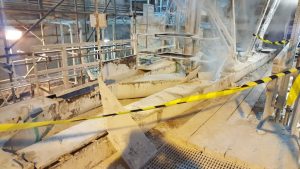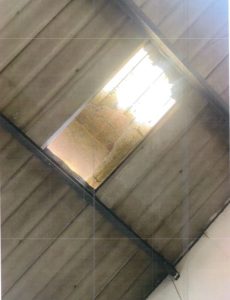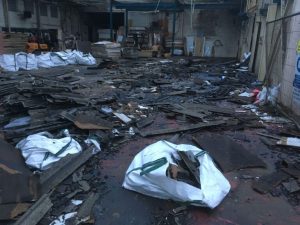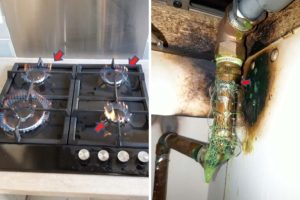Construction director fined £2,000 for no hot water on site
This post has already been read 1031 times!
Roland Couzens, 67, from Macclesfield, left workers on his site without hot water for three months and was prosecuted by the HSE after it emerged bricklayers, plasterers and a roofer could have suffered skin burns or lead poisoning as there was no hot water to wash off dust and contaminants on one of his sites.
The Magistrates Court in Trafford heard that Couzens, a director at CSC Construction Ltd, had been running a project to refurbish a row of Victorian terraced houses on Ashton Old Road in Openshaw between May and September 2013 and was aware of the situation.
The building company, which has since gone into administration, had been stripping the houses bare for refurbishment before plastering them and fitting them with new kitchens and bathrooms.
When the HSE carried out an inspection of the site on 4 September 2013 they found that one of the properties was being used for the site office and to provide welfare facilities for the workers, but there was no hot or warm water supply in either the kitchen or bathroom for the workers on the site.
The court heard that bricklayers and plasterers and other workers, were put at risk of suffering skin burns as they were working with cement and plaster but could not use hot water.
Couzens admitted to visiting the site several times a week during the project but failing to provide a hot water supply until after the HSE inspection, despite the need for hot water being highlighted in the company’s construction plan.
Couzens, of Rushton Spencer, near Macclesfield, was fined £2,000 and ordered to pay £3,102 in prosecution costs after pleading guilty to a safety breach on the site in on Ashton Old Road in Openshaw.
Commenting after the hearing, HSE Inspector Matt Greenly said: “There were around a dozen people working on the site every day so it’s astonishing that they were without hot water for more than three months.
“Mr Couzens was brought in to oversee the project, including the health and safety of workers, but he failed to ensure this basic legal requirement was met.
“The houses were taken back to brick before being completely renovated so there were large amounts of dust, as well as the risk of workers suffering skin burns or lead poisoning from the components in the building materials.
“This case should act as a warning to companies and directors that we will not hesitate to prosecute if they do not act to ensure the health and safety of their employees.”
Many employers are not aware or chose not to provide propper welfare facilities for their worker this prosecution send a clear message to bosses of construction companies.


















